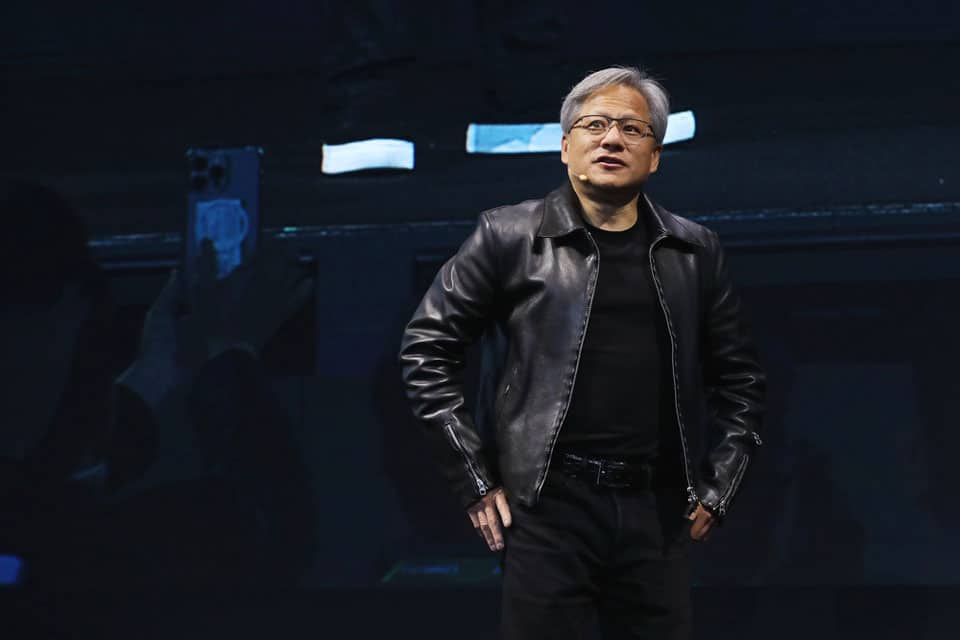
Jensen Huang, the CEO of Nvidia, has skyrocketed to the 11th spot on the real-time billionaire rankings surpassing Mukesh Ambani, with his net worth now standing at a staggering $119 billion. This represents an extraordinary 2280% increase over the past five years, underscoring the rapid ascent of Nvidia, which has become the world’s most valuable publicly traded company.
Huang, who co-founded Nvidia in 1993 and has led the company since its inception, has witnessed its market capitalization soar by 177% to an impressive $3.33 trillion. This meteoric rise has been driven by Nvidia’s dominance in the artificial intelligence sector, with its stock climbing over 3% on June 18, adding more than $4 billion to Huang’s fortune.
Nvidia, which initially focused on graphic processing units (GPUs) when it went public in 1999, has since evolved into a powerhouse in AI, data centers, and autonomous vehicles. The company’s recent stock split, which lowered the price per share from over $1,200 to below $130, made Nvidia’s shares more accessible, further boosting its market value.
At the beginning of 2024, Huang’s net worth was estimated at $77 billion. However, the surge in Nvidia’s market cap has significantly boosted his ranking, placing him just below former Microsoft CEO Steve Ballmer and ahead of Indian business magnate Mukesh Ambani. Huang has also revealed plans to sell 600,000 shares of Nvidia before March 2025, as detailed in a recent securities filing. This sale represents only a fraction of the 3% stake he holds in the company.
Back in 2019, Huang was ranked as the 546th wealthiest person globally, with a net worth of $5 billion. By last year, he had jumped to 76th on the list, thanks to a $114 billion increase in his wealth over the past five years. Huang’s rapid rise reflects the transformative impact of the AI revolution on the tech industry and Nvidia’s pivotal role in this shift. In comparison, Indian billionaire Gautam Adani is currently 15th on the list with a net worth of $104 billion after a $19.6 billion increase this year.
News
Janine Gutierrez, now eating healthy, recalls, “Dati pinapapak ko pa yung ketchup.” a.
For someone who has always been lean and apparently in good health, Janine Gutierrez surprises with her revelation that she’s been watching…
Janine Gutierrez shares why she calls Paulo Avelino a ‘bully’ on the set a.
After first being paired up together on a movie project before the pandemic, Janine Gutierrez said doing a teleserye together…
Nadine Lustre’s boyfriend Christophe Bariou opens up about cancer journey a.
Nadine Lustre’s boyfriend Christophe Bariou bravely shared the intense and challenging journey he faced in his battle against cancer. On Tuesday, June…
Video: Nahihiyang nagkwento si Kim Chiu tungkol sa viral kissing scene nila ni Paulo Avelino “I find it so…..” a.
Kim Chiu on viral kissing scene with Paulo Avelino: ‘Baka pag inulit-ulit ‘yun, kami na’ Tila may kwelang hirit…
Nadine Luster’s controversial photo of revealing climbing outfit sparked great debate among fans, but this is the truth a.
Actress Nadine Lustre took to her Instagram stories to clarify the controversial pictures that emerged online during her trekking session…
EXCLUSIVE: Jericho Rosales is ready to get back on the track and start relationships a.
All the world’s a stage, and Jericho Rosales is a player who finds the classic beauty of life and love’s…
End of content
No more pages to load













Leave a Reply